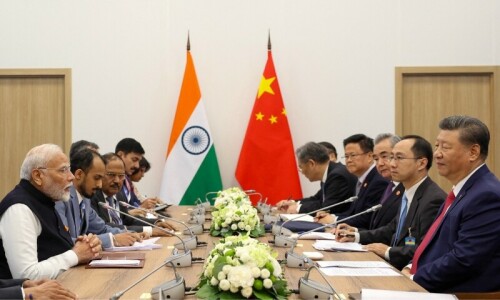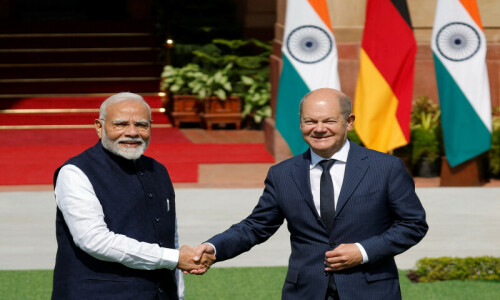IT is no secret that visa applications to the UK and Schengen countries come at a high cost. But recent published data on rejected visas for these countries reveals the sheer volume of refusals and the high costs faced by rejected applicants from developing countries.
In 2023, some 40pc of Pakistanis applying for UK and Schengen visas were rejected. They collectively paid a whopping £5.3m for failed visa applications to the UK and €3.344m for rejected Schengen visas.
This practice of charging exorbitant visa fees, in pounds or euros, for applications that are ultimately rejected is exploitative, and unfairly burdens applicants from poorer nations. The staggering rejection rates, too, underscore systemic biases in the largely non-transparent visa approval process. The policy effectively denies countless individuals the opportunity to travel for business, education, or personal reasons, while also extracting significant financial resources from them.
The comparison made by Lago Collective’s Marta Foresti illustrates this disparity: while an Italian can secure a visa on arrival in Sierra Leone for a mere £30, a Sierra Leonean must endure a lengthy, costly, and often futile application process to enter Italy.
Moreover, the recent hike in visa application fees, set to rise further, exacerbates matters. With Schengen visa fees increasing from €80 to €90 and UK fees from £100 to £120, the financial burden on applicants from countries with high rejection rates will only worsen. This is particularly egregious given that these fees are non-refundable, regardless of the application’s outcome. In 2023 alone, the UK collected £44m from rejected visa fees.
Though foreign missions understandably use these fees to fund their operations, their governments must address the blatant unfairness of an applicant paying in full for a visa that is rejected. Countries that set visa fees with a view to generating income and funding operations should re-evaluate the unfair burden it places on applicants who are denied entry.
Published in Dawn, June 17th, 2024












































Dear visitor, the comments section is undergoing an overhaul and will return soon.